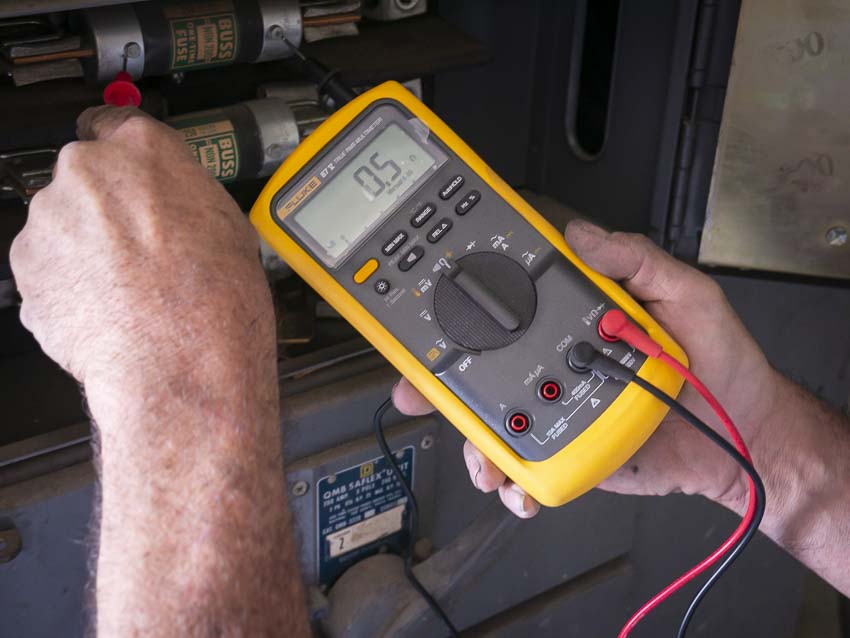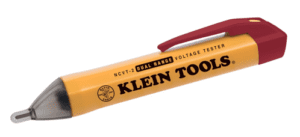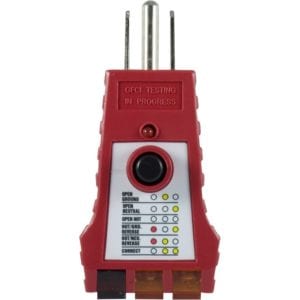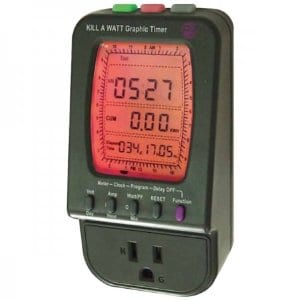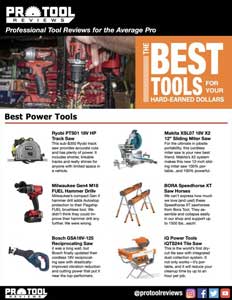Any decent electrician worth his Romex has an arsenal of electrical testing tools in his collection. With the recent proliferation of new electrical tools and devices hitting the market, we wanted to share our thoughts on buying the right tools for testing and troubleshooting. Hopefully, this shopping guide helps both professionals and apprentices building up or enhancing their tool rigs when performing the most common tasks.
Guide for Buying Electrical Testing Tools
In our circles, electricians are the folks who specialize in the electrical wiring of residential & commercial buildings. While some electricians specialize in new construction, others are very adept at renovation work and rewiring. Both, however, need to have a full suite of electrical testing tools in order to successfully execute their work. We want to be helpful in making recommendations when it comes to buying electrical testing tools.
Clamp Meters
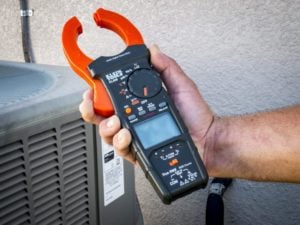
A clamp meter (or current clamp/clamp-on ammeter) is an electrical meter with an integral AC current clamp. An obvious advantage of this tool is that it allows you to measure current without deactivating or disconnecting a device or circuit. The tool is designed to be placed around a single conductor. It’s used primarily as a means of determining current or amperage of a given wire or cable. If more than one conductor is passed through then the measurement would be the vector sum of the currents flowing in the conductors.
In the case of a standard 12/2 cable wired for 120V power, the same current flows down one conductor and up the other. That gives you a net current of zero. This is easily solved with an AC line separator, which divides the positive and neutral lines for easy measurement. Clamp meters can also measure voltage and resistance, among other things. This handy tool remains absolutely critical for professionals.
Non-Contact Voltage Detector
We can’t have a guide to buying electrical testing tools without including the simplest tool you can have on-hand. We mean a non-contact voltage detector is a tool that can really save you from a jolt. It lights up and/or buzzes when it detects a hot lead. Put it up to an outlet and you’ll know whether or not the breaker you just tripped disconnected power as expected. Or, if you’re replacing a ceiling fan, you’ll know whether or not turning off the switch killed all the power in the fixture. It keeps you from getting zapped if a hot lead comes from another circuit. This is an inexpensive tool that everyone from homeowners to electricians should have in their toolbox. As an added bonus, many new electrical devices, like clamp meters and some digital multimeters come with this function already included.
When you shop for this tool, look for models that have an audible alarm. It keeps you from having to pay close attention to the indicator light. Those are often hard to see in full sunlight. It also may be a neat feature to have an integrated LED light on the tool, though this isn’t necessary. If you want more information other than just voltage detection, you can pay for it. We actually prefer just the simple tool and leave the rest up to our multimeters.
Fork Meters
A fork meter is similar to a clamp meter in that it measures AC current in addition to voltage (and often resistance if it has test leads). Clamp meters are perfect when working on a circuit where you want to measure current simply by sliding the fork of the tool over the cable itself.
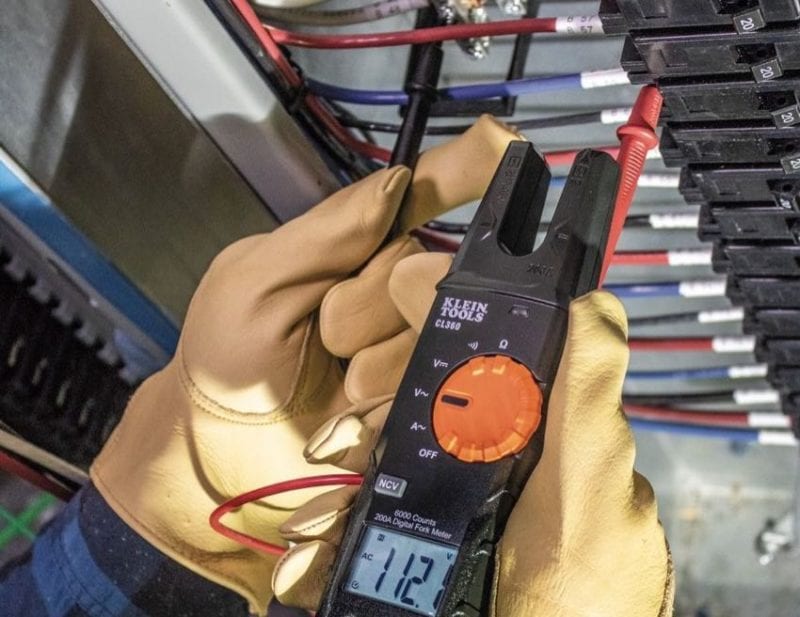
The tool works with single conductor cables, making it perfect for working in an electrical panel box. With a panel box, cables are already separated and accessible. This is where a fork meter shines. This tool can be inexpensive, or it can be certified to work with extremely accurate parameters and even NIST certified.
Digital Multimeters
Once you know how to use a digital multimeter (or DMM), you likely have access to one of your most powerful electrical testing tools. Digital multimeters, also known as voltmeters, ohmmeters, or volt-ohm meters, come in several flavors. In general, any decent digital multimeter has a 97% accuracy spec. We always recommend getting a “True RMS” meter. The difference is simple. A true RMS meter actually measures voltage and current. It does this even when conditions aren’t ideal.
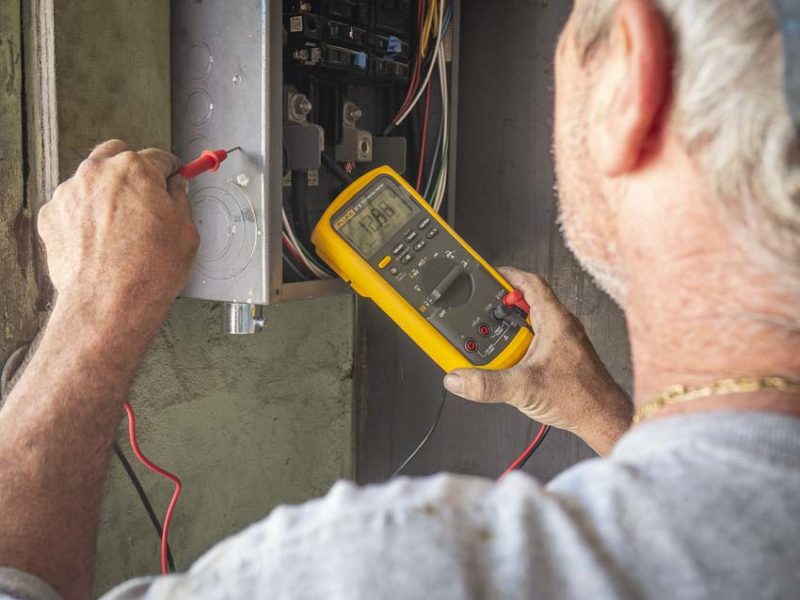
This particularly helps when the frequency at the source isn’t a nice clean 60Hz. This comes in handy when dealing with electrical motors in particular. Apart from that, digital multimeters differ in their specific options and functionality. Some allow for features such as sample-and-hold, auto-polarity, auto-ranging, and even a low-bandwidth oscilloscope.
Circuit Testers or Receptacle Testers
The circuit tester, or receptacle tester, instantly tells you if you have an open ground, neutral, or hot line at any point within the circuit. Most circuit testers also let you know if the hot and ground or hot and neutral are reversed. For reasons that should be obvious, this could have devastating results if not immediately remedied before inserting any electrical device.
More sophisticated circuit testers will add additional functions, like GFCI testing. In fact, a lot of times these products are simply handy for remedial circuit identification. Use them when locating GFCI-slave circuits by tripping the GFCI switch and seeing if the light goes out on the tester. Advanced circuit detection is possible with units that come with a “circuit sniffer”. They let you plug the circuit tester directly into the wall. Then, you locate the associated breaker at the panel box with a non-contact detector.
Tip: You can use more rugged circuit testers to “manhandle” electrical outlets during installation to ensure they are straight so that your plate is perfectly flush and square to the wall.
Circuit Analyzers
A circuit analyzer is basically a circuit tester on steroids. It offers some additional features that a basic circuit tester doesn’t include. For example, it will give a reading on hot and neutral conductor impedances, identify false (bootleg) grounds, and test ground fault circuit interrupters (GFCIs) and EPDs (equipment protective devices—a GFCI-like device that trips at a higher current level) for proper operation.
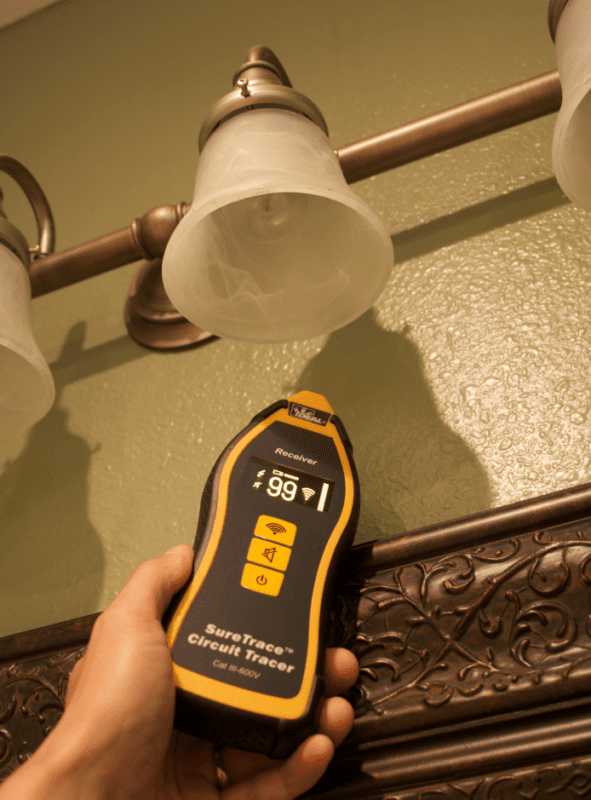
Most importantly for newer homes that have the latest codes, these devices can test ARC fault circuit interrupters (AFCI). These are now mandatory in bedrooms as of the 1999 NEC (which had an effective date of 2002). These devices typically cost much more than a basic circuit tester. The additional benefits they offer are extremely useful for electricians and home renovators who deal with a lot of rewiring.
Beyond Electrical Testing Tools with Watt Meters
The wattmeter isn’t a professional’s tool in the normal sense—unless you’re selling appliances or doing energy efficiency audits. It’s a tool that measures how much electricity is flowing through any particular circuit. That means that you can tell, for example, how much electricity a particular 120V device (say, a refrigerator or computer system) is using over the course of a particular period of time.
It measures the electricity in watt-hours—quite literally the number of watts consumed over time. It can display voltage, amperes, apparent instantaneous power, and even power factor (a factor of the real power flowing to the load vs the apparent power measured in the circuit). You can also plug in your electricity rates into most watt meters and get an actual cost for electricity consumed. Most watt meters now use digital displays. Many even plug right into the wall, with outlets that can be accessed for the throughput measurement. These devices also typically store their measurements for later recall or export to a PC.
That Wraps It Up
This represents just a smattering of tools you’ll want to have on-hand for your arsenal of electrical circuit testers and current and voltage meters. As you do more and more work, you’ll want the quality of your tools to increase along with you. For those starting out, it’s surprising how affordable most of these tools are.

